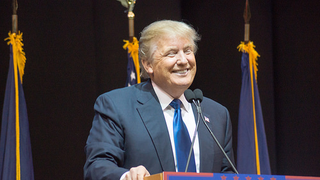President Donald Trump
Trump News: Reaction, Proaction, or Predictable Surprise?
Senators Flake and Coons move to protect Special Counsel Mueller.
Posted November 16, 2018

President Trump is tweeting about the FBI’s investigation of possible conspiracy and obstruction of justice, calling it a “total mess… absolutely nuts… a disgrace.”
Meanwhile, U.S. Senators seem to be facing a major choice point with far-reaching ramifications: Whether and how to facilitate or hinder the investigation (or do nothing meaningful either way).
What Would You Do?
Most often, our decisions and actions are passive or reactive rather than proactive. The best choices depend largely on circumstances and thorough, competent analysis of options and possible outcomes. Regarding the Mueller investigation, if you were a Senator, which would you do: stay uninvolved, react only if the president takes future blocking actions, or take preventive action now?
Senators Jeff Flake (R-Az.) and Chris Coons (D-De.) are attempting the latter. They presented to Senate Majority Leader Mitch McConnell (R-Ky.) a bipartisan bill that would prevent President Trump from orchestrating special counsel Robert Mueller’s dismissal. The goal is to allow the FBI investigation to continue, reach a natural closure, and deliver valid, transparent, evidence-based conclusions.
Senator McConnell would not allow a vote on the bill. McConnell said at a press conference Wednesday, “As you can imagine, I talk to the president fairly often, [and there’s been] no indication that the Mueller investigation will not be allowed to finish, and it should be allowed to finish. We know how the president feels about the Mueller investigation, but he’s never said, ‘I want to shut it down.’ ... I think it’s in no danger, so I don’t think any legislation is necessary.”
Supporting his leader, Senator John Kennedy (R-La.) said “I don't think it's necessary. I have seen no overt acts by anyone to try to either fire Mr. Mueller or interfere with his investigation. I don't think he should be fired... All of this [concern, the proposed bill] is based on sheer speculation."
When asked what harm it would do, Senator Kennedy replied, “We just don't need this right now.”
Senators Coons and Flake say they will keep trying to bring the bipartisan bill to the floor for a vote.
Predictable Surprises
Professor Max Bazerman and consultant Michael Watkins wrote an essential book about predictable surprises: harmful events that could have been prevented if leaders had taken action based on information they already have showing evident patterns and danger signs. Predictable surprises appear when no one—or not enough people—takes preventive action despite their pre-existing knowledge.
Yet how many Psychology Today readers will be surprised if the president tries even harder to undermine the Mueller investigation?
Risks and Kudos for Being Proactive
In the Trump/Mueller example, the proactivity from Senators Coons and Flake includes actually (uniquely!) collaborating across party lines, and attempting—ideally, over time—to prevent a potentially-huge future problem.
Senator Flake receives criticism, often, for the many things he hasn't done. We all can be criticized for what we haven’t done, and we all criticize others for the same—for instance, our bosses, relatives, colleagues, and elected officials. Mr. Flake also receives periodic praise for being a rare Republican critic of the president. We have lauded his contrarian Republican voice elsewhere.
May I suggest changing our criticism/praise ratio, by giving more support for the constructive actions that people do take—especially problem-preventing action, and exponentially so when it’s risky, path-breaking, and in the face of powerful resistance.
With the Mueller/Trump example being Exhibit A: It’s far better to prevent problems than have to dig out of even worse problems. Only thoughtful proaction can do that.


